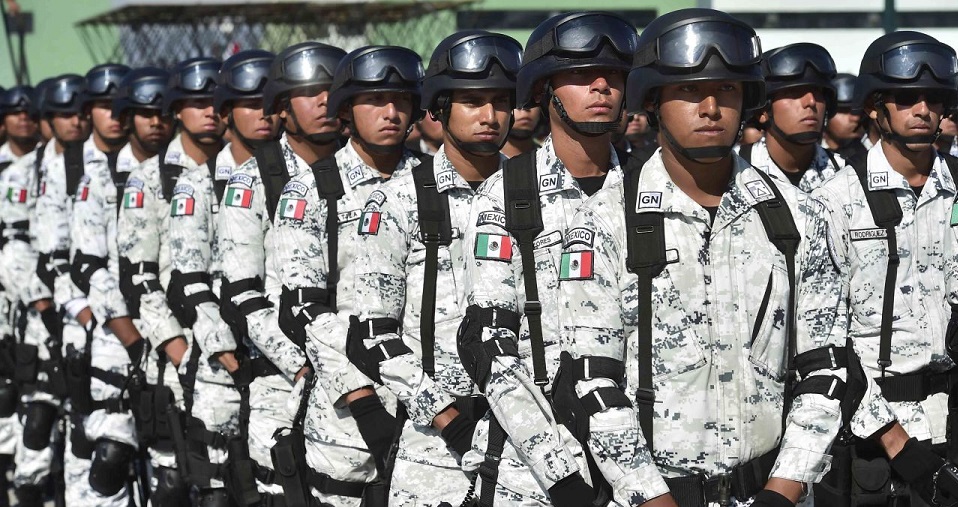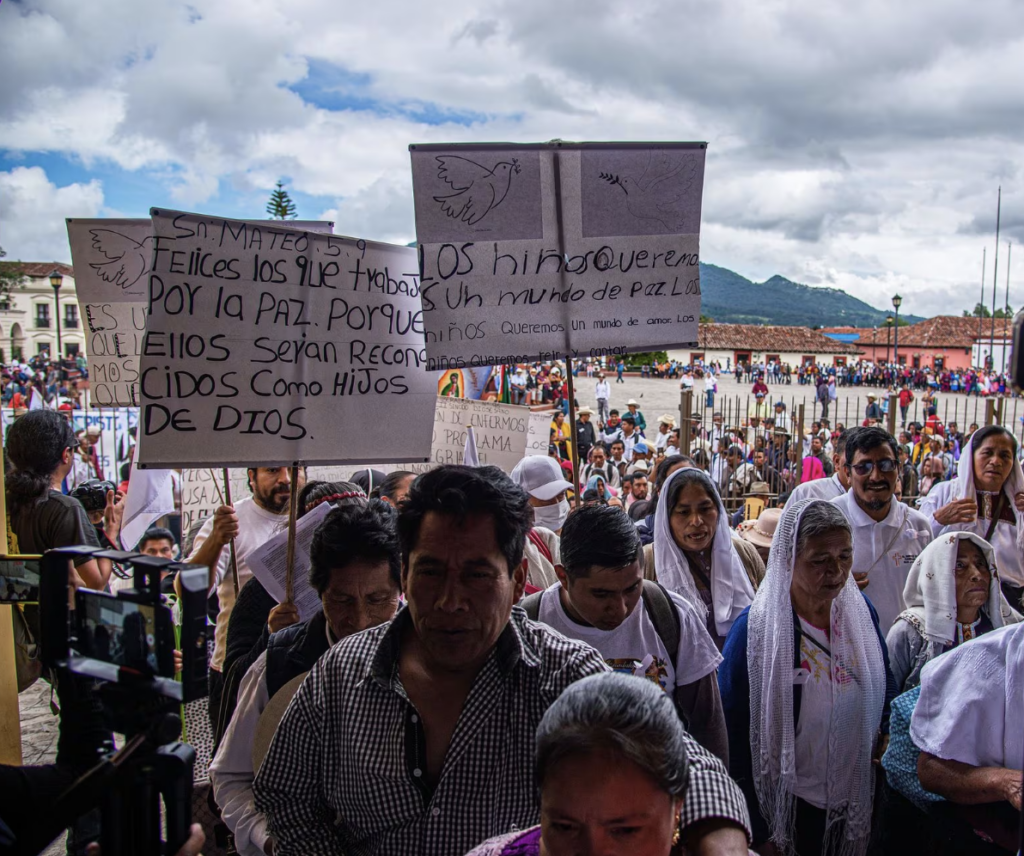10/01/20 (written by emarinoni) –
Introduction
The draft budget proposal delivered to the Mexican Congress by the Minister of Finance Arturo Herrera Gutiérrez on September 8, 2020 proposes increased spending for security and peace, in response to rising levels of violence in Mexico.
The proposal would also include an increased budget for the National Guard, a national police force introduced by President Andrés Manuel López Obrador in an effort to provide public security to the country. Since its conception, the role of the National Guard has been ambiguous in nature. The proposed expansion of the National Guard budget, in a context of a rising reliance on the armed force in public security issues, calls into question the real prospects for improvements in public security and the militarization of law enforcement.
The Proposal
According to data provided by El Financiero, the 2021 budget proposal posits a 21.8% increase in the budget of the National Guard. In 2021, its budget will be around 36 billion pesos, up from the 29 billion pesos (roughly 1.6 billion USD) budget in 2020. In addition to this money, an additional 500 million pesos will be provided for the construction of 76 National Guard headquarters across the country.

In addition to the money allocated for the National Guard, the proposal aims to give this institution financial independence. Previously, the budget of the National Guard also included that of the Federal Police, according to the agreement between the Transition Unit of the Ministry of Security and Citizen Protection (Unidad de Transición de la Secretaría de Seguridad y Protección Ciudadana).
The max spending for public security during the administration of Calderón, considered to be a turning point for the public security militarization was roughly 56 billion pesos (roughly 2.5 billion USD). The public security budget continued to increase during the administration of Enrique Peña Nieto (2012-2018) as well, 81 billion pesos (roughly 3.6 billion USD), almost double the amount allocated during the Calderón administration (2006-2012). Considering that the security budget has been rising since 2000, the budget proposed by López Obrador would not only represent a further increase but also constitute the highest security budget since 2000.
Possible Implications
Concerns about increasing human rights violations that the creation of the National Guard would have supposed were pointed out by various academics since the creation of the latter. In its 2020 World Report, Human Rights Watch reasserted the persistence of crimes such as tortures, enforced disappearance, and abuses carried out by the recently-born National Guard. According to an investigation led by Animal Político, in 2019 Mexico’s National Human Rights Commission (Comisión Nacional de Derechos Humanos, CNDH) registered at least 32 complaint files for alleged human rights violations by the National Guard in the first five months of its operation.
The last episode happened on September 8, 2020 in Chihuahua where the National Guard was involved in a violent confrontation with farmers that were protesting to get back the control of La Boquilla dam, that provides water to the United States according to a binational treaty signed in 1944 between Mexico and the United States. According to the protesters who seized the dam, this treaty is responsible for water shortage in the border, affecting agricultural production of the farmers who live in the area. The accident claimed two people’s death and several injured. The fact is still under investigation, but many witnesses point to the National Guard as responsible for open fire against the protesters; on the other side, exponents of the National Guard declared that before repelling the aggression, it was attacked first by armed civilians.
This isolated episode fits in a wide record of human rights violations perpetrated by security forces. Both the Washington Office on Latin America and Justice in Mexico published working papers about police and military abuses in Mexico; there are plenty of cases of rape, forced disappearances, corruption, and tortures. The episode of the enforced disappearance of the 43 students from Ayotzinapa encompassed most of the before-mentioned crimes.
The National Guard Law (Ley de la Guardia Nacional) establishes that in order to be a part of it, recluses must get through and approve an evaluation process made of several proofs of different nature. A recent study from Animal Politico shows that by August 2020 only 8,605 of the almost 83,000 National Guard elements achieved the Unique Police Certification (Certificado Único Policial, CUP). This is just 1 in 10 guards deployed are working with a background formation in areas such as human rights and gender among others. The National Guard has a period of up to two years to complete the trust evaluation among all elements of the force since it was approved in 2019. However, the National Guard is underwhelming in its participation rate thus far, and there are no clear signs yet that indicate the situation will improve.
Conclusion
The 2021 budget proposal fits in a larger context of further militarization projects. The sign of the new security decree on May 11, 2020, that expands the role of armed forces in public security, showed the increasing dependency of the president on the latter. In light of this scenario, the weak predisposition to get armed forces off the streets by 2024 is evident.
Moreover, Animal Político highlights the fact that the budget increase will be not accompanied by reinforcement of other agencies that are fundamental and complementary in the fight against violence and the implementation of public security. The proposed budget for 2021 for the National Intelligence Center (Centro Nacional de Inteligencia, CNI) is 2.6 million pesos, a reduction of 4.2% compared to 2020. Another victim of the budget cut is the Executive Commission for Attention to Victims (Comisión Ejecutiva de Atención a Víctimas, CEAV), to which it is intended to allocate around 844 million pesos in 2021, 12 million less than what was originally approved for this year. In real terms, this represents a 4.7% decrease.
In sum, there is evidence that the increase in the budget could lead to excessive empowerment of the National Guard, which in turn could increase the number of human rights injuries and abuses at the expense of the civilian population. Nevertheless, despite the reduction in the budget of key agencies such as the ones previously mentioned, there is still a part of the budget that can be allocated for the implementation of structural reforms in all bodies dealing with public security: from the National Guard to the municipal police.
These reforms will have to focus first on the prevention of crime, and not so much on the direct and violent fight and confrontation. In addition, they must provide comprehensive training to security personnel with assessments adapted to the specific tasks assigned to each of them.




